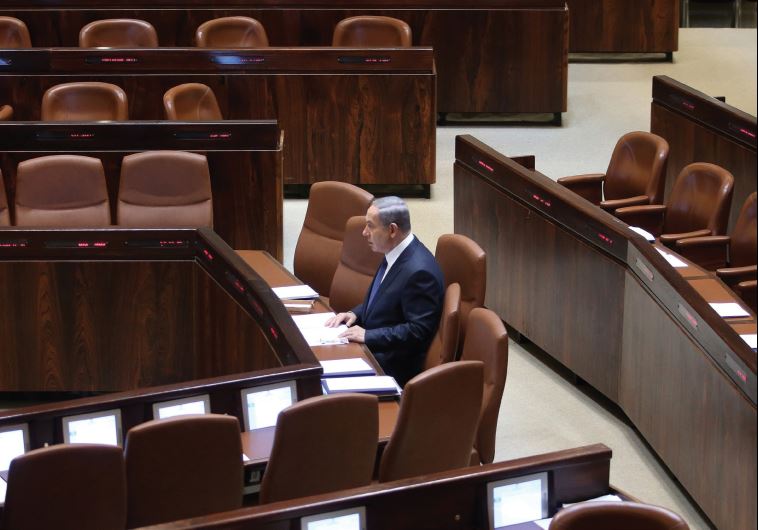The Jerusalem Post Editorial: The 121st MK
How a about a petition for a bill to elect Knesset representatives responsible to their constituencies, and not chosen by party loyalist?
 PM Benjamin Netanyahu at the Knesset(photo credit: MARC ISRAEL SELLEM/THE JERUSALEM POST)Updated:
PM Benjamin Netanyahu at the Knesset(photo credit: MARC ISRAEL SELLEM/THE JERUSALEM POST)Updated: